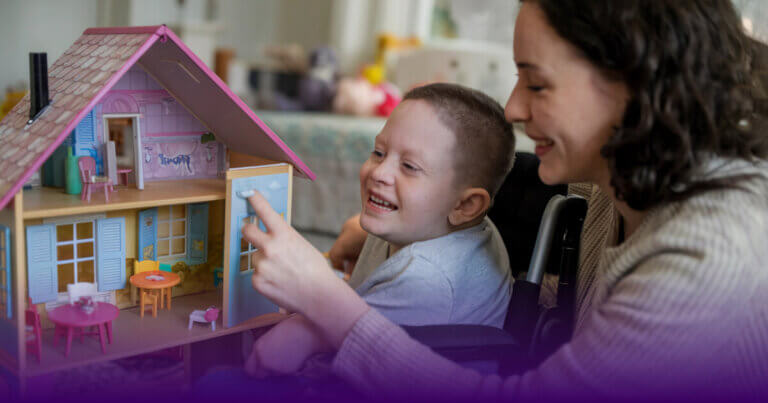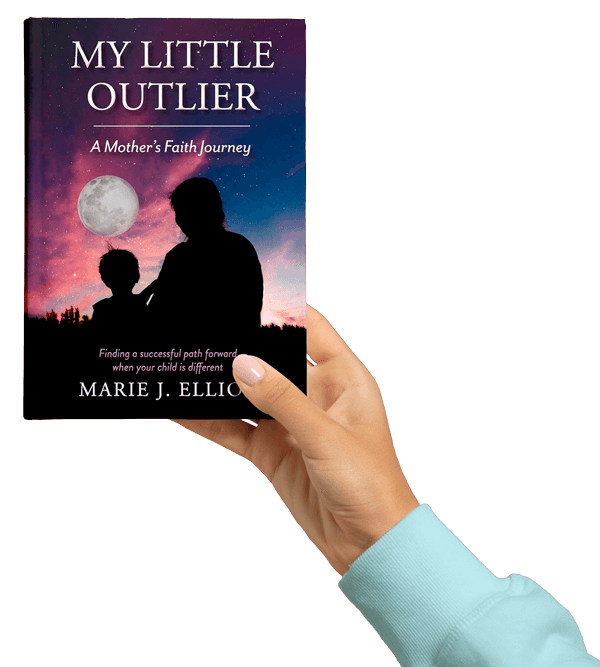Making decisions for my Outlier is one of the most significant responsibilities in my life. Whether it’s choosing doctors, schools, or making medical decisions, all of them used to scare me. They still do. Changing medication, therapists, or doctors, or even adjusting a dosage, everything scares me.
Parenting with Courage: Acting Despite the Fear
Why? Because I believe any decision I make for my Outlier, or any child, for that matter, could change their lives forever. It could make or break them. While there’s some truth to this, inaction, doing nothing, or delayed decisions can also make or break your child’s life.
So, what I’ve learned on my journey of parenting my Outlier is to do the groundwork: analyze, weigh the options, consult experts, do online research (I now use AI, too), and talk to people who have been in the same boat. I then pick an option and go with it.
While I still have my fears, I’ve come to understand that courage is making the right choice despite those fears. I’ve trained myself to act despite my fears, as long as I’ve done the homework. After all, you can only make the best decision using the knowledge you have at that moment. Some decisions require a leap of faith because there’s no clear evidence to go one way or the other. In those cases, you have to pick one and roll with it.
The paralysis of fear
For many of us, the fear of making the wrong choice can be paralyzing. We worry that one wrong turn could change our child’s life forever. This fear often stems from a place of love, but when it takes over, it can lead to inaction. We might delay a decision, hoping more information will surface, or we might overanalyze every possible outcome until we’re exhausted.
This fear can have many sources:
- Fear of failure: What if the choice doesn’t work out? What if it makes things worse?
- Fear of judgment: What will other people think? Will they question my parenting?
- Fear of the unknown: The future is uncertain, and we can’t predict every outcome.
- Lack of knowledge: We worry that we don’t have enough information to make an informed choice.
While these fears are valid, it’s important to recognize that inaction is also a choice. By not making a decision, we’re still shaping our child’s future, and often not in a positive way. Your child’s life won’t wait for you to feel 100% ready.
Making a decision at work vs. at home
Think about your professional life for a moment. At work, you probably make dozens of decisions every day. Some are small, and some are significant. You gather data, consult with colleagues, and weigh the pros and cons. You don’t always feel completely comfortable with the outcome, but you make the decision and move forward.
The key difference with parenting is the emotional component. We are deeply attached to our children, and the stakes feel incredibly high. But the process of making a good decision is similar. You can use a structured approach to move past the fear and make a confident choice.
The art of informed decision-making
Making a good decision doesn’t mean you’ll be right every time. It means you’ve done your due diligence and made the best choice you could with the information you had at the time. Here’s how you can approach it:
- Do your homework: Just as you would research a major purchase like a car or a house, research the options for your child. Read articles, consult reputable websites, and use tools like AI to get a broader understanding.
- Consult the experts: Talk to doctors, therapists, teachers, and other professionals who know your child. Their insights can provide valuable perspectives and data points you might have missed.
- Learn from your peers: Connect with other parents who have walked a similar path. Online forums, support groups, or even just talking to a friend who “gets it” can offer real-world advice and emotional support.
- Weigh the pros and cons: Create a list of the potential benefits and drawbacks of each option. This objective exercise can help clarify your thinking and reveal a path forward.
- Choose and act: Once you’ve done the work, it’s time to choose an option and commit to it. It’s okay to acknowledge your fear, but don’t let it be the deciding factor.
Sometimes, despite all the research, there’s no clear answer. That’s when you have to trust your gut and take a leap of faith. You’ve done the groundwork; now it’s time to make a choice.
You won’t make every shot, and that’s okay
The truth is, not every decision will be the right one. Some will lead to unexpected challenges, and some will feel like missteps. But remember this: you are making these choices from a place of deep love for your child, using the best resources you have available.
Life keeps moving, and so must you. The most important thing is to make a choice, learn from the experience, and adjust as needed. By taking action, you are actively shaping your child’s life for the better, one decision at a time.
Conclusion: The courage to act
Parenting an Outlier is a journey defined by love, learning, and courageous choices. It’s about more than just making the “right” decision; it’s about having the courage to decide at all. You will make mistakes, and that’s okay. Each choice, whether it leads to success or a new lesson, is a testament to your dedication and love. Trust your instincts, lean on your support system, and remember that even with fear in your heart, you have the power to create a path forward for your child. The most important choice you can make is to keep going. I invite you to share your experiences on this topic in the comments below.





